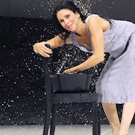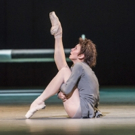Jenny Gilbert
MOST POPULAR ARTICLES
June 8, 2017
As eavesdropping opportunities go, the barber shop has everything a playwright could desire: a constant stream of close encounters and a broad range of people willing to sit still and talk. That talk feeds directly into Inua Ellams' new play for the National, which follows a day in the life of male grooming parlours across six world cities: London, Johannesburg, Harare, Kampala, Lagos and Accra.
May 25, 2017
The very survival into the 21st century of an unfinished play written by a 23-year-old in 1836 is an extraordinary thing, made more extraordinary by the grimness of its subject. Even to call Georg Buchner's text a play - 'the world's first working-class tragedy' - is a bit of a stretch.
May 16, 2017
From The Sound of Music to Gareth Malone's The Choir, the redemptive power of choral singing has provided a wealth of feel-good stories. The discipline, the communal spirit, the beauty of the music bring out the best in everyone. Just not the 17-year-old pupils of Our Ladies of Perpetual Succour, a fictional convent school in the Scottish coastal town of Oban. For them, the prospect of a trip to Edinburgh to compete in a choral competition is merely a chance to be off the leash for an afternoon and 'get mental'.
April 5, 2017
If Matthew Bourne had set out to produce a dance show to express the sentiments of Brexit, he couldn't have done it more effectively than this. The fact that Early Adventures is a mixed bag of pieces he made almost 30 years ago is by the by: two thirds of the evening is a fond and gently satirical examination of British ideas of what it means to be British; the other third is about the British notion of foreign-ness, specifically that alien species just across the Channel. To be sure, the original intention was far from political, but the resonance these pieces have acquired, post-Article 50, is striking.
February 24, 2017
What could be more cheering in a dank dark London February than a blast of Spanish flamenco? Answer: a Sadler's Wells flamenco gala, a fistful of stellar talents for the price of one.
February 10, 2017
For anyone who had been wondering, seven and a half years on from the demise of Pina Bausch, what was the point of her company's continued trawl through her back-catalogue, this visit is reason enough. It's not just that Masurca Fogo, which takes its inspiration from Portugal and Cape Verde, brings a welcome blast of sunshine into a dank London February. It's that in these dark days of global divisiveness the whole Bauschian project seems even more vital a celebration of shared humanity.
December 13, 2016
Ibsen's Hedda has been called the female Hamlet and not just because it's a role that every serious actress wants to play. The blank at the heart of her presents a daunting challenge. Why is she so unhappy? Why is she, frankly, such a bitch? The text leaves much unanswered, and every director, every Hedda, must join the dots in their own way.
November 8, 2016
Gender-blind casting has arrived and we'd better get used to it. Correction: it seems we are getting used to it, viz the imminent revival of the Donmar's all-female Shakespeare trilogy. So the headline story of this Old Vic production is not that a woman is taking on the Everest north-face of a role formerly reserved for mature alpha males of the acting profession. The headline story of Glenda Jackson's Lear is that this Lear is magnificent, and its magnificence emanates directly from the text.
October 27, 2016
If Kenneth MacMillan had left well alone, the taut little chamber piece he made in 1967 - stark, inventive and affecting - would be hailed a modernist masterpiece by now. Instead, swayed by the demands of becoming director of the Royal Ballet in 1971, he lumbered Anastasia with two long preceding acts to fit the traditional full-evening format.
Videos










